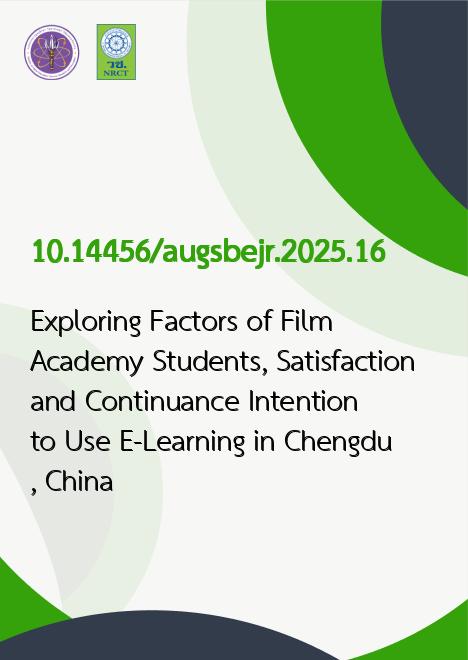
|
Exploring Factors of Film Academy Students, Satisfaction and Continuance Intention to Use E-Learning in Chengdu, China |
|---|---|
| รหัสดีโอไอ | |
| Creator | Mengke Li |
| Title | Exploring Factors of Film Academy Students, Satisfaction and Continuance Intention to Use E-Learning in Chengdu, China |
| Publisher | Assumption University Press |
| Publication Year | 2568 |
| Journal Title | AU-GSB e-Journal |
| Journal Vol. | 18 |
| Journal No. | 1 |
| Page no. | 160-169 |
| Keyword | E-learning, Service Quality, Information Quality, Satisfaction, Continuance Intention |
| URL Website | http://www.assumptionjournal.au.edu/index.php/AU-GSB/article/view/7448 |
| Website title | AU-GSB e-Journal |
| ISSN | 1906-3296 |
| Abstract | Purpose: The purpose of this paper is to explore the factors that impact the student satisfaction and continuance intention with e-learning in Chengdu, China. The Technology Acceptance Model (TAM), Expectation Confirmation Model (ECM), and Information Systems Success Model (ISSM) serve as the foundation for the conceptual framework in this study. The study explores the key constructs from previous studies to propose a conceptual framework, including service quality, perceived ease of use, perceived usefulness, confirmation, information quality, satisfaction, and continuance intention. Research design, data, and methodology: The researcher distributed the questionnaire to undergraduate students in film academy, using a quantitative survey approach with 480 samples. The sampling methods include judgmental, quota and convenience sampling. Before the data collection, Item-Objective Congruence (IOC) index and a pilot test of Cronbach,s Alpha were used to ensure validity and reliability. The data analysis was mainly conducted by Confirmatory Factor Analysis (CFA) and Structural Equation Modeling (SEM). Results: All hypotheses were found to be supported. Service quality and perceived ease of use significantly impact perceived usefulness. Furthermore, perceived usefulness, confirmation, information quality significantly impact satisfaction towards continuance intention. Conclusions: This implies that students' propensity to continue utilizing e-learning will rise if they have high satisfaction with their online learning experience. |
